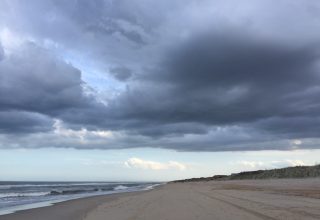
References
Argyris, C. (1999). On organizational learning. Oxford, UK: Blackwell Publishers Ltd.
Csikszentmihalyi, M. (1990). Flow: The psychology of optimal experience. New York: Harper Collins
Corey, G., & Corey, M. (1999). Group technique (2nd ed.). Pacific Grove, CA: Brooks/Cole.
Erikson, E.H., & Levinson, D. (Eds.). (1980). Themes of love and work in adulthood. Cambridge, MA: Harvard University Press.
Flamholtz, E., & Randle, Y. (2000). Growing pains: Transitioning from an entrepreneurship to a professionally managed firm. San Francisco: Jossey Bass.
Flores, F.(2003) Building trust. New York: Oxford University Press. Freud, S., & Brill, A.A. (1995). The basic writings of Sigmund Freud.New York: Random House.
Gilligan, C. (1982). In a different voice: Psychological theory and women’s development. Cambridge, MA: Harvard Business School Press.
Handy, C. (1989). The age of unreason. Cambridge, MA: Harvard Business School Press.
Hudson, F. (1999a). The adult years – Mastering the art of self-renewal. San Francisco: Jossey Bass.
Hudson, F. (1999b). The handbook of coaching – A comprehensive resource guide. San Francisco: Jossey Bass.
Hudson, F., & McLean, P. (2000). Life launch: A passionate guide to the rest of your life. Santa Barbara, CA: Hudson Press.
Jung, C. (2006). The undiscovered self. New York: Signet-Penguin Books.
Kegan, R., & Lahey, L. (2001). How the way we talk can change the way we work: Seven languages for transformation. San Francisco: Jossey Bass.
Knowles, M. (2005). The adult learner. Burlington, MA: Elsevier.
Kolb, D.A. (1984). Experiential learning. Englewood Cliffs, NJ: Prentice Hall.
Levinson, D. (1973). The seasons of a man’s life. New York: Knopf.
Levinson, D. (1996). The seasons of a woman’s life. New York: Knopf.
Maslow, A. (1998). Toward a psychology of being. New York: John Wiley & Sons.
Nietzsche, F. (1927). The philosophy of Nietzsche. New York: The Modern Library.
Nietzsche, F. (1967). Basic writings of Nietzsche (W. Kauffman, Trans.). New York: Random House.
Piaget, J. (1972). Intellectual evolution from adolescence to adulthood. Human Development,15(1).
Seligman, M. (1992). Learned optimism: How to change your mind and your life. New York: Houghton Mifflin.
Wilbur, K. (1998). The marriage of sense and soul: Integrating science and religion. New York: Random House.
_____
We encourage you to review the other essays contained in this issue of The Future of Coaching. Following are the links to each of these essays:
The Social and Cultural Characteristics of Generational Age Groups
Searching for Vitality: Coaching through the Lenses of Adult Development Theory and Research
Senior Leadership in Community: Interview with Norman Westmore
The Book Shelf: George Vaillant, Triumphs of Experience
Coaching Across the Generations: Questions to Ponder Based on Research/Theory

















